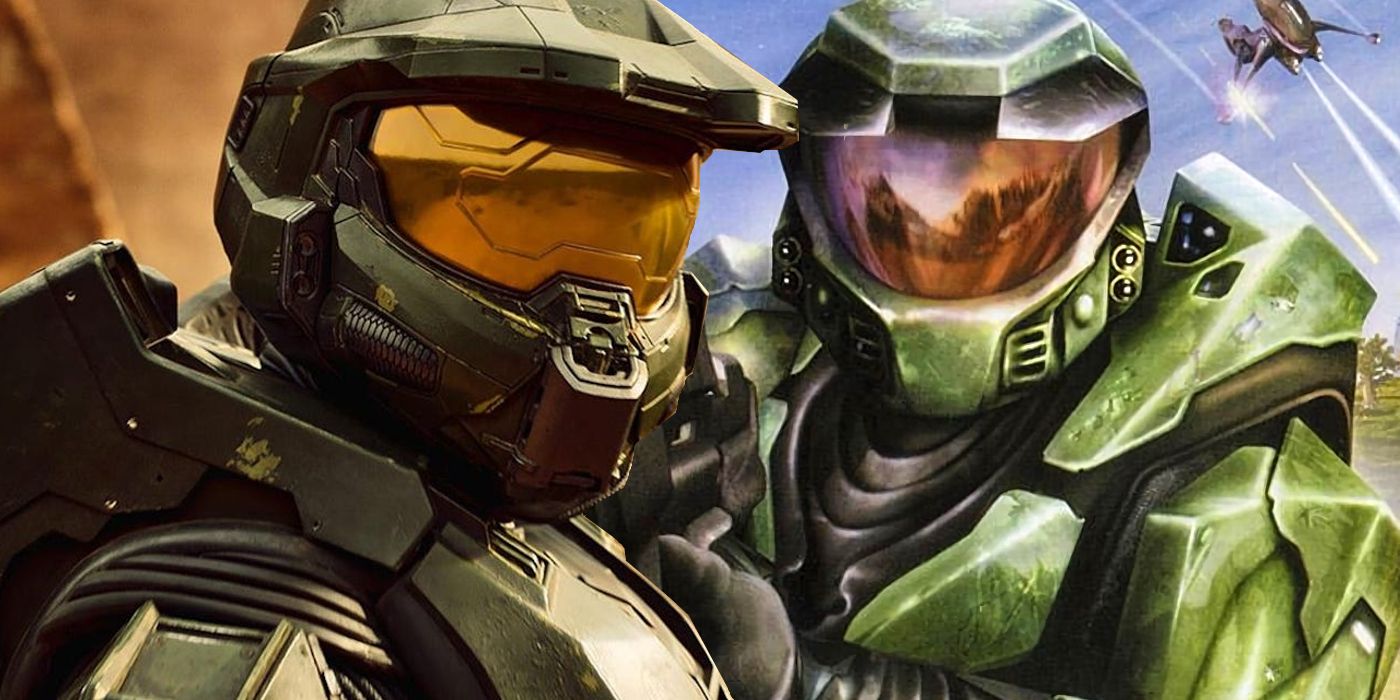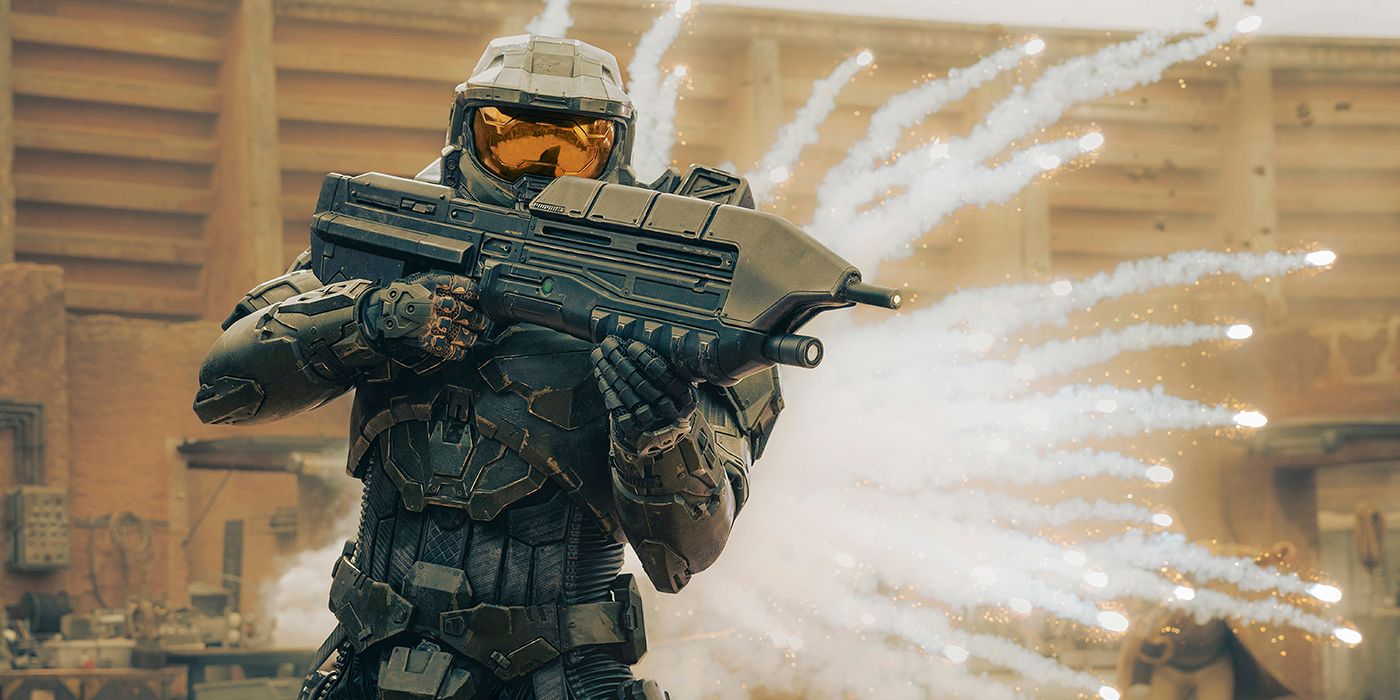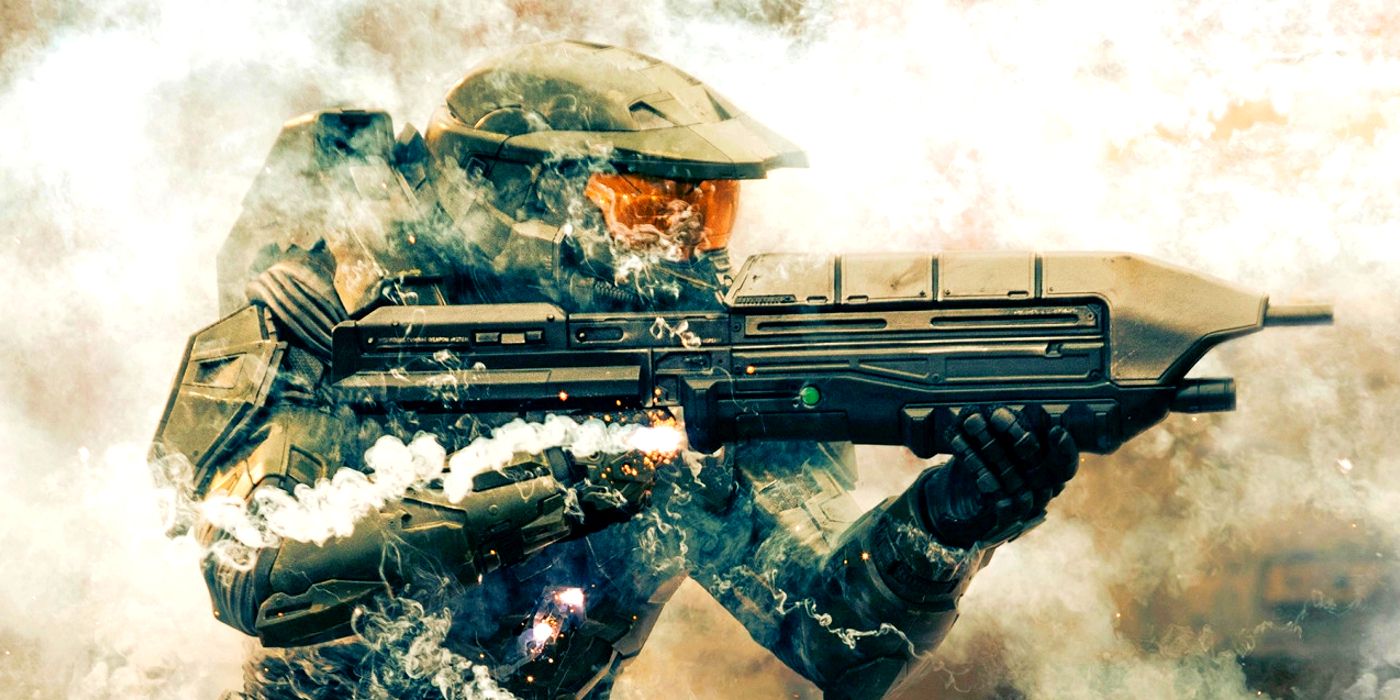Paramount+ has finally brought the Halo TV series to life, but it doesn't quite live up to its potential. In 2001, Microsoft released the first Xbox console - and it was accompanied by the release of Halo: Combat Evolved. Bungie's first-person shooter is generally considered the best of its genre, setting a new standard for similar shooters - many of which became known as "Halo Clones." It sold five million copies in its first year of release, and was seen as the Xbox's greatest selling point. Naturally, it didn't take long for talk to begin about adapting Halo: Combat Evolved into a TV series.
Back in 2005, in the aftermath of Halo 2's incredible sales performance, Microsoft hired Alex Garland to write a script for a feature film. 20th Century Fox and Universal Studios struck a deal to partner with Microsoft on the movie in 2006, but unfortunately it fell through pretty quickly. By 2013, Microsoft had pivoted to the idea of a TV series, with Steven Spielberg serving as Executive Producer. A corporate restructure at Microsoft caused further problems, and incredibly the show is only reaching screens in 2022 - 17 years after discussion first began about bringing the Master Chief to life in a live-action format. Producer Darryl Frank has confirmed Spielberg was still involved, though; "We treated it as though it was a legacy project of Steven's," he observed. "He godfathered it in terms of reading every script, helping choose showrunners, writers, director, cast, production design, and visual effects."
This does mean there's a lot of pressure on Paramount+'s Halo series; after all, this is a show fans have been eager to watch for 17 years. The Master Chief is one of the most iconic characters of all time, and the Halo franchise is dearly loved. Is it worth the wait?
Halo Adapts More Than Just The Games
Halo episode 1 opens with an extended combat sequence that feels like a promise; this is the games brought to life. Spartans like the Master Chief and their Elite enemies are remarkably faithful to their original designs, and even the combat strategies deployed by the different groups match with the games. Even the sound effects match with the games, and fans are sure to be delighted to hear the distinctive sound of the Master Chief's personal shield recharging. Later, when Dr. Halsey reviews a mission log it looks as though she's viewing the world through the traditional first-person shooter. Oddly enough, though, the sense of nostalgia already makes the differences feel all the more notable; the Master Chief is played by Pablo Schreiber, whose voice isn't quite as gruff as the character in the games, and his swift unmasking will no doubt be controversial.
And then things head in a very different direction, one that will take many viewers by surprise. Showrunner Steven Kane caused controversy when he claimed Halo's writers didn't look at the game, which is palpably not true; rather, what he seems to have been meaning is that they didn't just draw upon the games for world-building. Rather, they've clearly engaged with the wider world of Halo tie-ins that have been released over the years. This has opened up countless potential stories, including some very personal ones; the dynamic between Dr. Halsey, Captain Jacob Keyes, and Commander Miranda Keyes will no doubt surprise many, but it's lifted straight from canon. Unfortunately these deep cuts are likely to come as a surprise to people who've only played the games, especially if they did so quite some time ago. And so for many, the world of Halo - one that should feel so very familiar - will suddenly feel strange and different.
Halo Doesn't Live Up To Its Promise
Halo tie-ins have added tremendous depth to the franchise, but unfortunately integrating them into the Paramount+ TV series means it becomes something that feels very different to the games. In Halo: Combat Evolved, there's a simple good-versus-evil dynamic; the Humans versus the Covenant, with the Spartans standing as humanity's champions. While the Covenant and their Prophets are still the villains of Halo, the UNSC don't feel particularly heroic - especially not when the first episode sees the Master Chief disobey orders to terminate a grieving teenager. Viewers are clearly supposed to root for the Master Chief, but he seems isolated and alone, a third party stood between two evils. Dr. Halsey's agenda is indecipherable; she commands Silver Team to protect the Master Chief, aware this will turn into a firefight that could end with her arrested for treason, so it's not entirely clear what her endgame would have been had a Forerunner artifact not conveniently released an electromagnetic pulse of some kind.
Sadly, many aspects of Halo's story feel like standard sci-fi. In part that's because Halo: Combat Evolved had a major impact on the development of science-fiction, so many of the tropes the series is employing are commonplace now. But it's also because, sadly, not every one of the tie-ins being used for inspiration was fresh and original in and of itself. Some of the books were tremendous, and are must-reads, adding tremendous depth to the Master Chief's world. Others are rather less creative, and their influence can be felt on Halo as well. It all means that, once the dust has settled from the opening firefight, Halo feels like a typical sci-fi action TV series. Given the iconic nature of the franchise as a whole, it's hard not to be disappointed by that.
-
Still, the potential is there for Halo season 1 to serve as a solid foundation on which future seasons can be built. Paramount has already renewed Halo for season 2, and hopefully the creative team will be able to learn from their missteps in the first season. Season 1 clearly seems to be serving as the road to discovering Halo, presumably ending with the legendary Fall of Reach, which means there's a sense in which Halo season 2 will be when the show hits its stride. It will be exciting to see what happens next - and how Paramount+ adapt the first Halo game itself.



